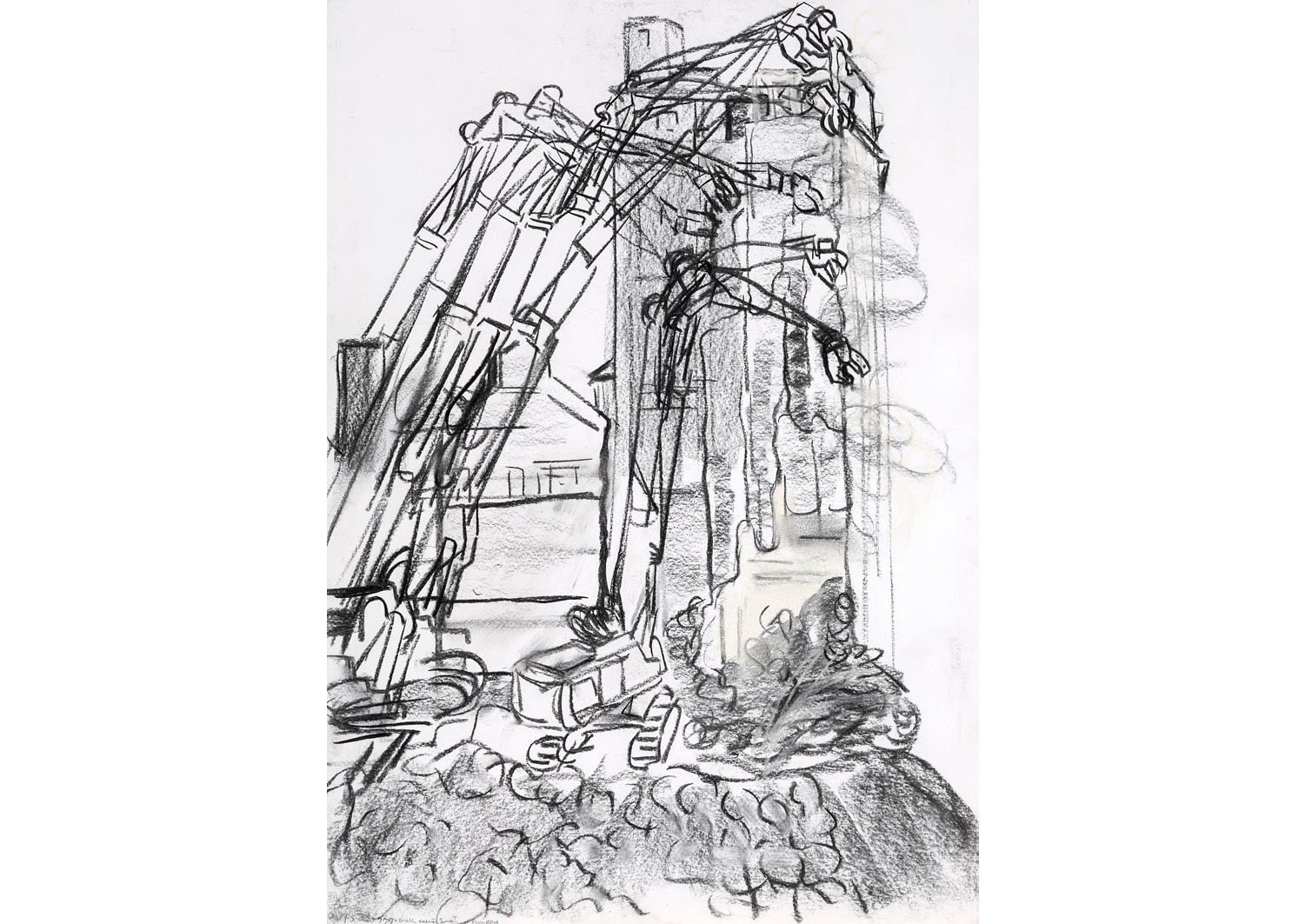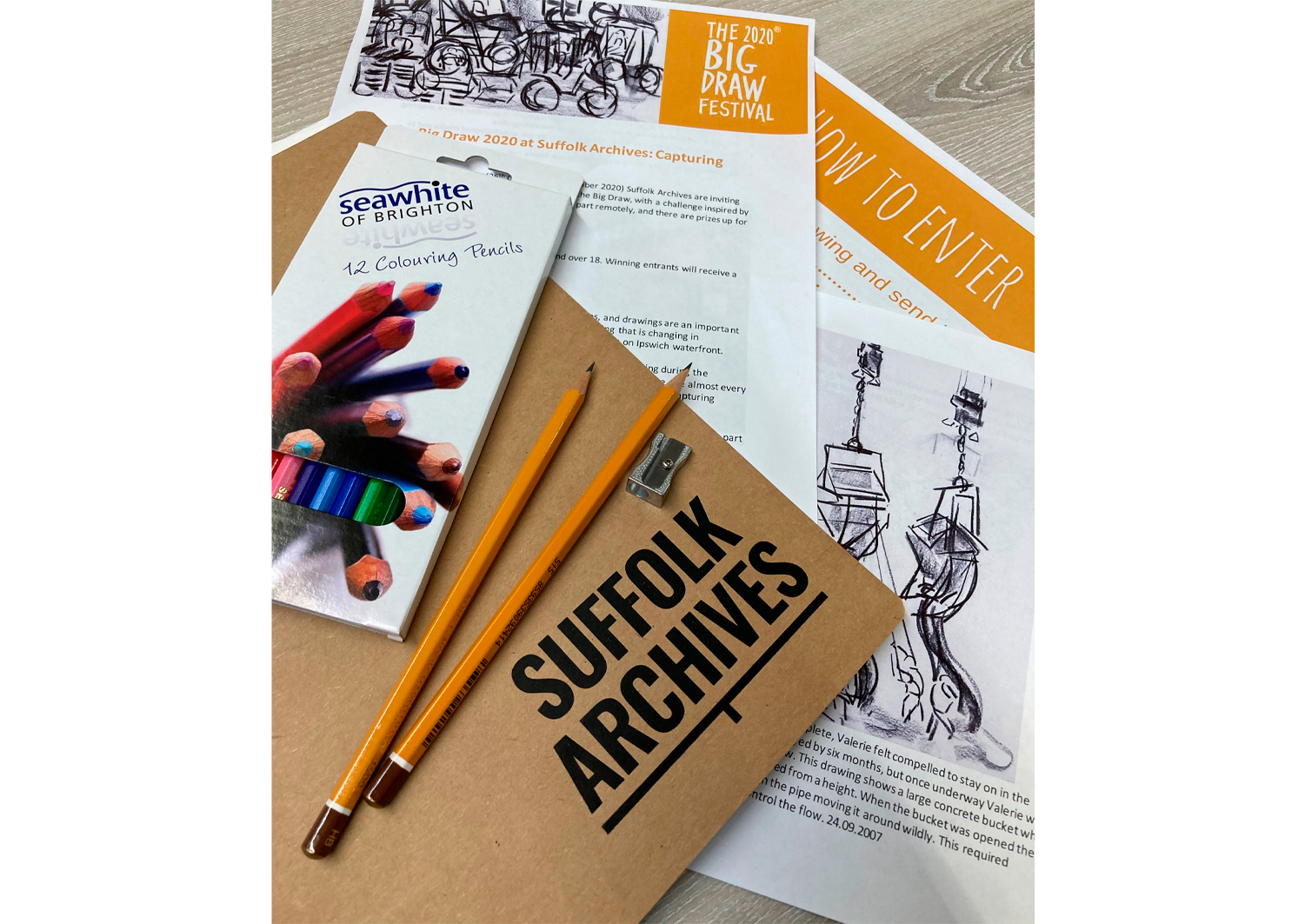We were thrilled to catch up with Suffolk Archives, Sponsor Partners of The Big Green Draw Festival, and chat with Hannah Salisbury about the Archives, how they have overcome the challenges faced over these past few months, and her thoughts on this year's theme #ClimateofChange...
Interview: Matilda Barratt in conversation with Hannah Salisbury.



Hi Hannah! Could you perhaps start by telling us a bit about Suffolk Archives and your work there?
At Suffolk Archives we care for 900 years’ worth of documents, maps, and images. They take up 8 miles of shelves and are packed with the stories of Suffolk’s people and places. You could spend decades here and still have new things to find out.
As a Community and Learning Officer my role is to create opportunities for people to use and enjoy our collections.
How has this year been for Suffolk Archives? Has it forced you to explore new approaches to your work/programming?
2020 has been an interesting year! It was always going to be a year when we experienced a lot of change with the opening of our new building, The Hold, on Ipswich waterfront. Completing and fitting out the building during a pandemic, however, was not part of the plan. We have transferred more of our activity online (such as contemporary collecting through online surveys instead of in-person events) and speeded up the production of resources that schools can access through our website. We have learnt a lot about what we can do remotely, but we’re also acutely aware that not everybody has access to digital resources, which is why for our Big Draw activities we will be distributing physical resource packs alongside digital information.


[One of Valerie Irwin’s charcoal drawings of demolition on Ipswich waterfront – part of the inspiration for one of Suffolk Archives’ Big Draw challenges]

Why is it so important to make your collections accessible and available, and to preserve them for generations to come?
The Explore Your Archive campaign has a great slogan – ‘A world without archives is a world without memory’. It is easy to take our archive collections in this country for granted because on the whole a great deal has survived and is well looked after, but imagine losing them all in some huge disaster – it would be very disorientating and uprooting.
Having open access to public records is also an essential part of living in a democratic society and being able to trust institutions whose rules shape our lives as citizens. Moreover, archives can tell us who we are as human beings, from our best qualities to our worst. They can show us how individual lives are turned upside down by wars and plagues, how life was lived by the rich and the poor, and help us to reflect on how we want to shape the society we live in today and in the future.
We use the term ‘visual literacy’ a lot - regarding its relevance across a breadth of different professions as well as its vital role in day-to-day life. I’m interested to know what it means to you? Do you think that visual literacy plays a role in interpreting historical documents?
Archive records can be loaded with visual symbols. Estate maps, for example, commissioned by wealthy landowners were not only useful tools for the management of land but also communicate messages about status and power.
Most of the collections we look after are handwritten. Handwriting has changed enormously over the centuries so to read, say, a 16th-century document you need to not only be able to read the language it is written in and navigate your way through different spellings and meanings of words, you need to be able to actually make out the shapes of individual letters. Until the early 19th century, for example, the letter ‘e’ was drawn the opposite way to how we make it today, appearing to us to be back-to-front.


[A sketch of the rear of properties on Lowestoft High Street by Richenda Cunningham, 1840s (LRO/573/1/1) – one of the images inspiring the second Big Draw challenge from Suffolk Archives]

Do you draw? What role, if any, does drawing play in your life and work?
I was a keen drawer as a child and through to the end of Art GCSE but have done very little since then. During lockdown, with no commute, I had more time than usual and for the first time in years got out an old watercolour set to experiment with. I’m also keen to have a go at lino printing and have made a small start on practicing designs. I think for a long time as a grown-up I subconsciously felt that drawing should be left to the professionals, but I’ve been really inspired by some of the projects we’ve done recently which use the archives as a starting point for creativity. I’ve been amazed by what some of the project participants produced and I wanted to have a go myself!
This year’s Big Draw Festival theme, ‘The Big Green Draw: A Climate of Change’, focuses on the relationship between people and our living environments and ecosystems, encouraging drawing as a means of positive activism. How does this resonate with Suffolk Archives, and why do you think it’s important?
Capturing change is a crucial part of the job of archives. If we had no meteorological or environmental records, for example, how could we track what was happening to our climate? We can also see how people have transformed the landscape over time, and how the natural materials available to people affected how they build their homes, what they ate, and how they made a living.


[Materials pack for Suffolk Archives’ Big Draw challenge]

Could you tell us about your Big Draw events this year?
For the Big Draw 2020 we are running two drawing competitions inspired by our archive collections. ‘Capturing change’ is inspired by Valerie Irwin’s drawings of demolition and rebuilding on Ipswich waterfront, and ‘Capturing your local area’ is inspired by Richenda Cunningham’s 19th century sketches around Lowestoft.
Full details are available on our website, including a link to request a materials pack:
https://www.suffolkarchives.co.uk/big-draw/
https://www.suffolkarchives.co.uk/big-draw/ness-fest/
We are looking forward to seeing what people come up with!

Thank you Hannah!

If you were inspired by this interview with Hannah and would like to find out more about Suffolk Archives, head to their website here.
Registrations are now open for The Big Draw Festival 2020: A Climate of Change! Find out more about the benefits of becoming an organiser here and other ways to support The Big Draw's mission here.
